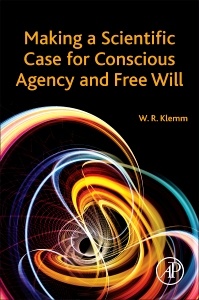Description
Making a Scientific Case for Conscious Agency and Free Will
Author: Klemm William R.
Language: English
Subjects for Making a Scientific Case for Conscious Agency and Free Will:
Support: Print on demand
Description
/li>Contents
/li>Readership
/li>Biography
/li>Comment
/li>
Making a Scientific Case for Conscious Agency and Free Will makes a series of arguments that certain human behaviors are impossible to explain in the absence of free will, and that free will emerges from materialistic processes of brain function. It outlines future directions for neuroscience studies that can harness emerging technologies and tools for systems-level analysis.
All humans have the sensation that they consciously will certain things to happen and that, in the absence of external constraints, they are free to choose from among alternatives. This notion of free will is deemed obvious by the average person based on common experience. Free will is frequently defended with arguments stemming from social, legal, philosophical, and religious perspectives. But these arguments appeal to consequences?not causes?of choices and decisions. In the past 3 decades, debate has raged within the scientific community over whether free will is in fact an illusion. Because free will would require conscious agency, the supporting corollary is that consciousness itself cannot do anything and is merely an observer rather than an actor.
Advanced students and researchers in cognitive neuroscience, cognitive science, and other areas related to consciousness, as well as those interested in neuroethics, neurophilosophy, neurotheology, neuropsychology, and the intersection between neuroscience and the law.
- Considers arguments for and against free will from religious, social, legal, and neuroscience perspectives
- Provides thorough coverage of the manifold human behaviors that can be explained only by free will, from consciousness to creativity
- Outlines future directions for further neuroscience research into the topic



